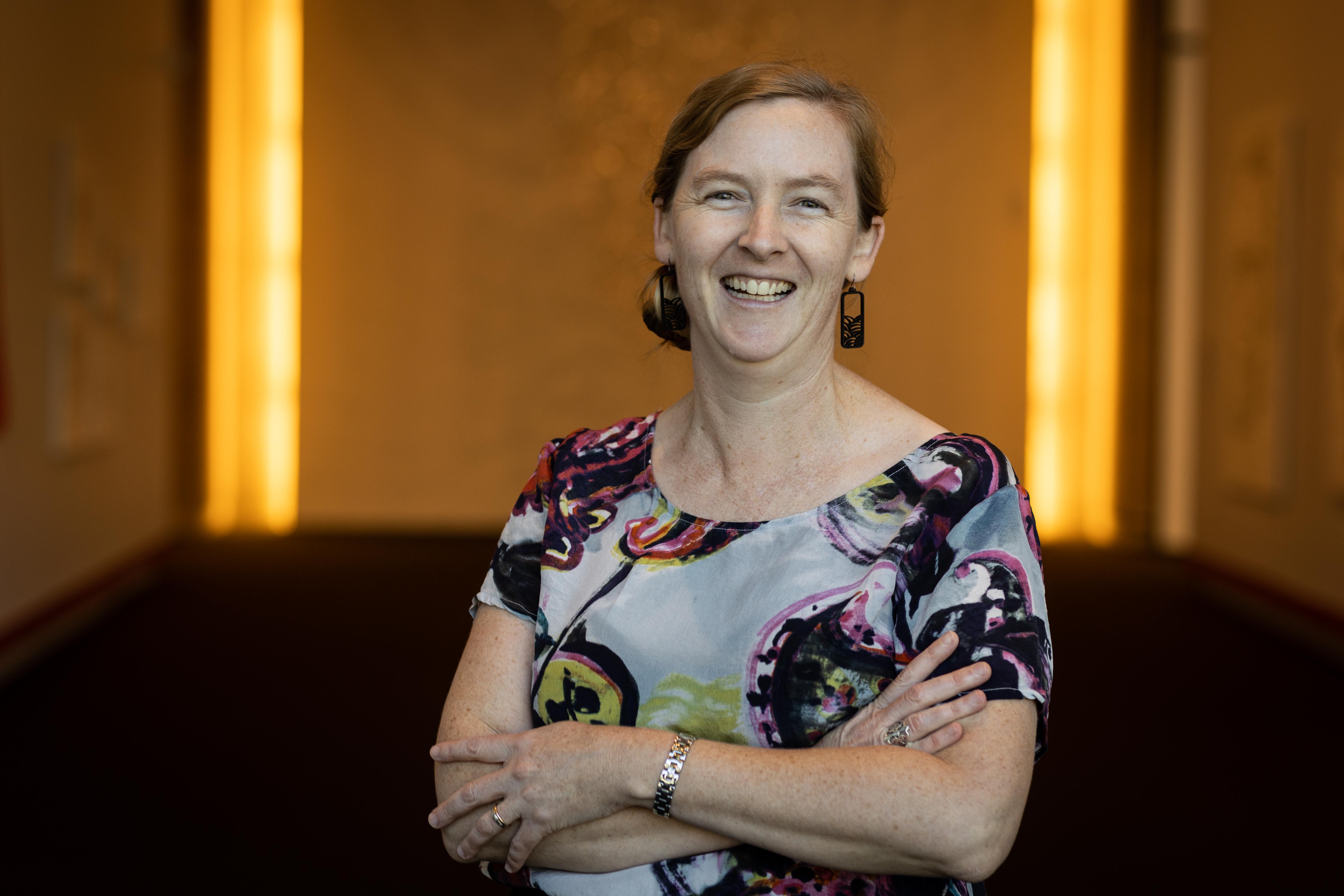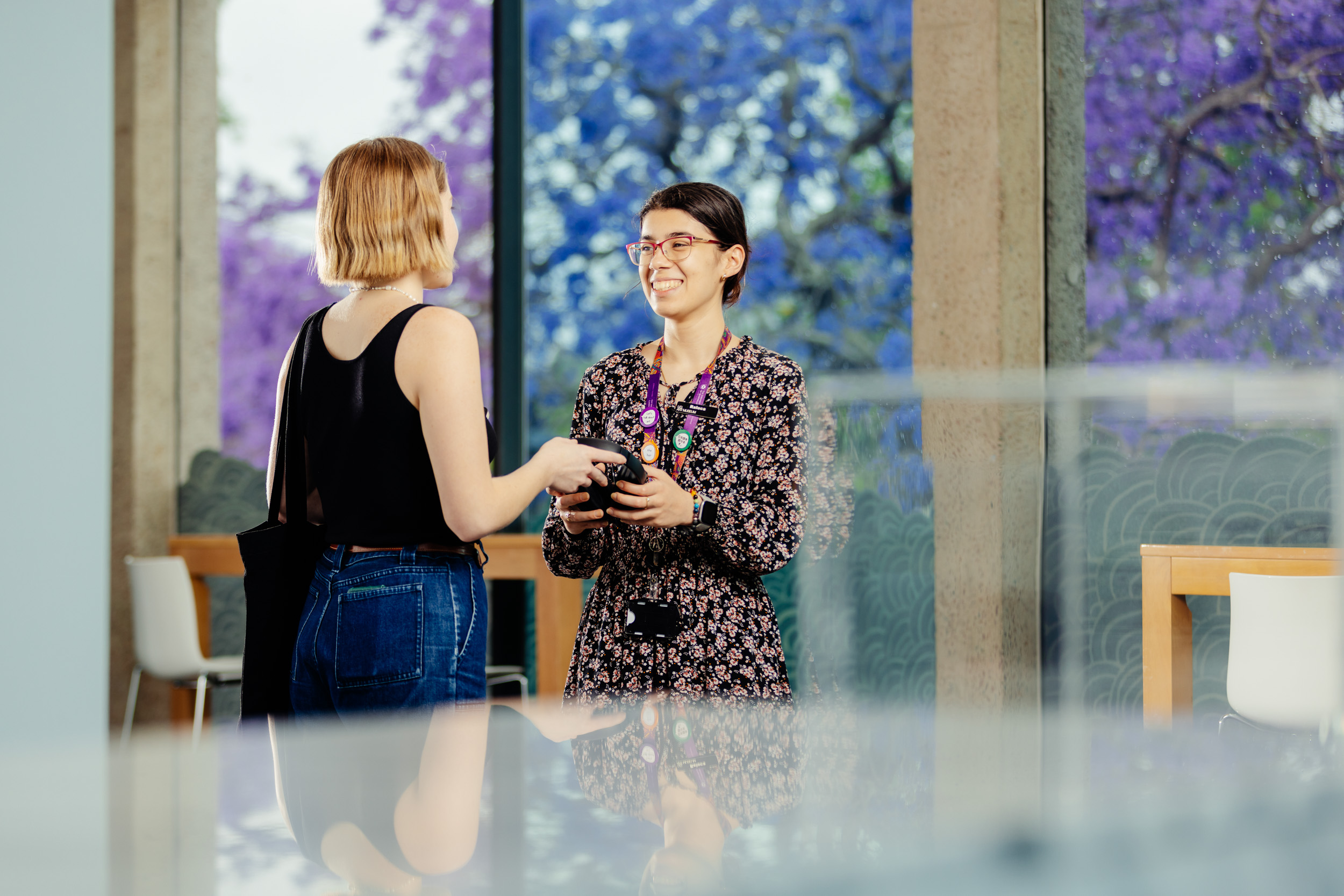 Our internship program gives UQ students paid opportunities to gain practical skills in museum operations. For the first time, we have offered an Access (Identified) Internship, funded by the generous Kinnane bequest we received in 2020. This opportunity has been created for a UQ student living with a disability studying Art History or Museum Studies who is passionate about access engagement in our industry.
Our internship program gives UQ students paid opportunities to gain practical skills in museum operations. For the first time, we have offered an Access (Identified) Internship, funded by the generous Kinnane bequest we received in 2020. This opportunity has been created for a UQ student living with a disability studying Art History or Museum Studies who is passionate about access engagement in our industry.
Sam Rowe is our first-ever Access Intern, and we’re delighted to introduce her here. She is currently a Master of Museum Studies student who is investigating accessibility and social inclusion of people with disabilities in Museums. As an experienced Mediator in our Visitor Engagement team, Sam played a key role in developing and launching our Disability Action Plan earlier this year, and continues to work on projects that help make our programs and collections more accessible.
Below, Sam explores how this internship experience is impacting her studies and professional development in the arts and cultural sector.
How have your studies assisted you in your role so far?
My Master’s thesis is an investigation of international accessibility practices and how these practices and representation of people with disabilities go beyond accessibility to social inclusion. It examines the contested nature of compliance initiatives which are inclusionary for some and exclusionary for others. That accessibility needs to move beyond disability and be viewed under an intersectional lens to dismantle ableist attitudes. How institutions can enact meaningful change through collaborative relationships that challenge ableism and centre people with disabilities as the leaders and experts of inclusion.
My academic research has supported both my Cultural Mediation role and my Access Internship through giving me an understanding of how accessibility and inclusion is practiced in other institutions, the gaps between scholarly literature and current practices, and the contested nature of accessibility.
What is something that you look forward to engaging in?
I look forward to researching international current best practices for accessibility and developing an exhibition and programming guide for how UQ Art Museum can enhance their accessibility and inclusion. I also look forward to the implementation of the sensory kits and communication cards that I have developed for UQ Art Museum, and to evaluate their effectiveness and impact for our visitors with disabilities.
What is one valuable insight you have learnt about your role since joining the team?
Implementing accessibility initiatives can be overwhelming. Developing an understanding on how to audit your organisation and examining what to work on first is key. No one can do everything at once, so having achievable and measurable targets and taking one step at-a-time is important to improving accessibility within an organisation. Breaking down attitudinal barriers is just as important, so institution-wide disability awareness training is vital, so that every staff member understands their individual responsibility to access in their daily practice.
How will this experience impact your career?
The Kinnane Access Internship has given me real-world experience in working in the accessibility space and developing initiatives that will improve access and inclusion for visitors, staff, contractors and artists of UQ Art Museum. It is also giving me an understanding of how the different museum departments intersect and collaborate on accessibility initiatives.

Thanks Sam! We're so happy to have you on the team.
As an organisation committed to diversity and inclusion, we celebrate the ability to hear from different voices across the university. Our visitor engagement approaches aim to foster an environment where all visitors can connect through meaningful conversations and interactions with contemporary art.
Find more information on UQ Art Museum’s Disability Action Plan 2023-24 here.
About the Kinnane Endowment Fund
The Kinnane Internships are funded by the Paula and Tony Kinnane Endowment, an extraordinary $8 million bequest.
This incredible training opportunity assists students in building practical skills in museum operations and promotes hands-on learning in different areas of specialisation. Students have gone on to obtain roles in leading state and national institutions, as well as roles here at UQ Art Museum.



